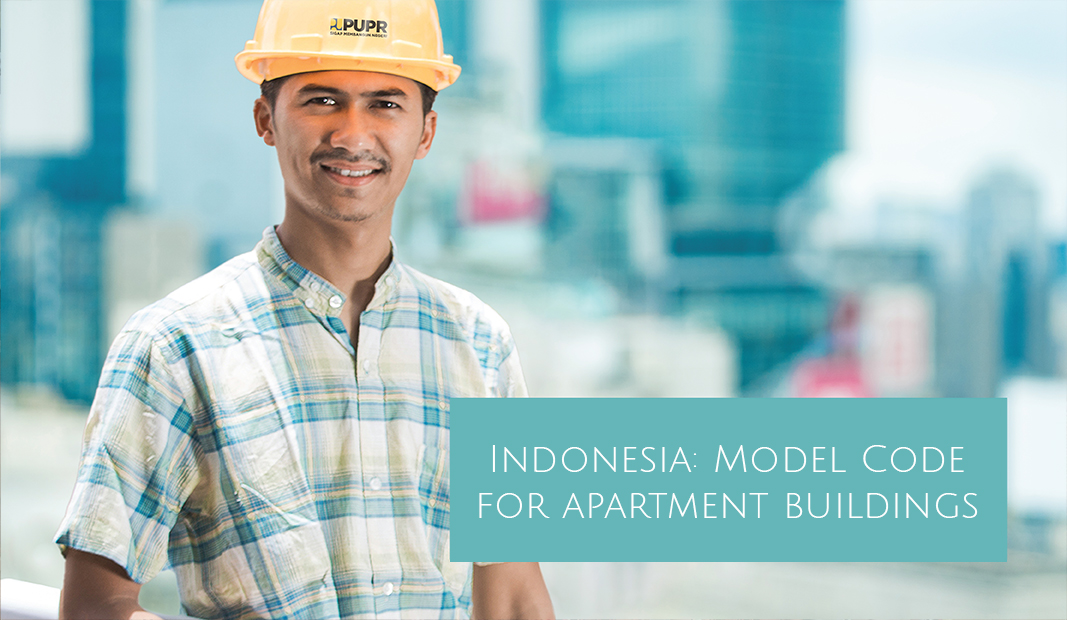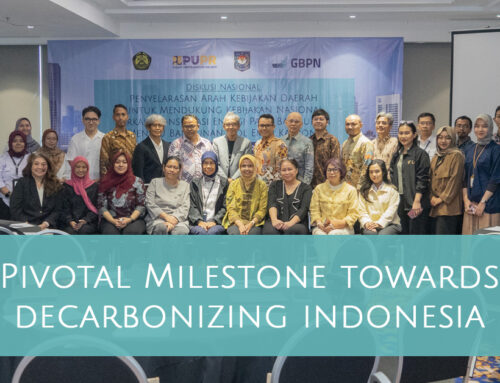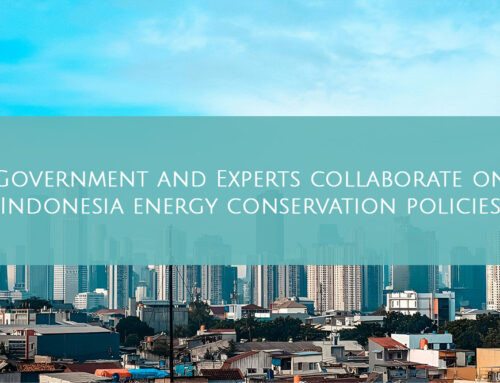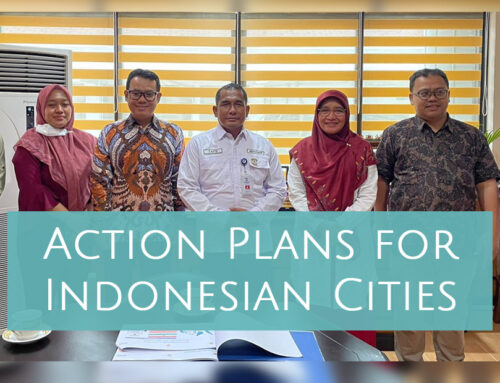GBPN has provided key technical advice to the Indonesian government to deliver a new Model Code for vertical housing (apartment buildings) in Indonesia.
This included a series of Key Performance Indicators (KPIs) to support developers in ensuring their new housing is more sustainable, in line with the vision of Indonesia’s President, Mr Joko Widodo, for the new capital city – Nusantara.
Mr Widodo defined his master plan for the new capital city – Nusantara – as being, “A city that is green, smart, and modern”, highlighting his progressive intentions.
GBPN supported the Ministry of Public Works and Housing (MPWH), especially the Directorate of Strategic and Planning and The New Capital City Task Force, in developing the new model code and hopes it will become mandatory in the new capital city development and also for nationwide development.
A vital piece of the puzzle
The Head of Housing Division in the New Capital Taskforce under MPWH, Dedy Permadi, said GBPN provided a critical piece of the puzzle that had been missing in enabling residential apartments to be more sustainable.
“Indonesia has attempted several measures to improve building performance through better legislation at national and local level,” Mr. Dedy said.
“However, the regulation has been too top-down and not informed by global best practices, thus they were often not effective and applicable in Indonesia.
“And then GBPN brought its global knowledge and expertise, in addition to its rich understanding of Indonesia residential building energy performance based on their research.
“GBPN manages to combine both modalities and assisted us in formulating the first ever vertical housing building code and KPIs, that we will apply and test in our new capital housing. This model code and KPI document is an easy to digest document which I believe will be applicable for Indonesia context.”
The model code is a compilation of Indonesia National Standards (SNIs), building regulations, and international codes and standards. This model code formulated by GBPN is intended to be used in the New Capital, to provide minimum standards to protect the public health, safety, and general welfare as they relate to the construction and occupancy of apartment buildings.
A key step towards decarbonising vertical housing
GBPN expert, Jimmy Juwana, agreed, stressing that the model code is a foundation for the development of various technical guidelines and regulations.
“The model code is needed not only to enable the achievement of the KPIs, but also to ensure all planning and design related to residential buildings are in accordance with technical standards,” Mr Juwana said.
“This is crucial to making sure residential buildings are built by following sustainability principles to maximally minimize carbon footprint.”
The model code and KPI development was led by three GBPN experts, Jimmy Juwana (building expert), Totok Sulistiyanto (building energy expert), and Yodi Danusastro (green building expert).
GBPN CEO Dr Peter Graham said the model code was a key step towards decarbonising vertical housing in Indonesia.
“The model code is the first in Indonesia to focus specifically on improving the environmental performance including setting minimum performance benchmarks for energy intensity of apartment buildings,” Dr Graham said.
“This shows the will of the local government to put in place the framework to reduce the carbon impact of the huge number of new developments set to progress in Indonesia in the coming years.”
The New Capital act was issued on January 18, 2022, providing a legal foundation for the new capital development and paving the way for implementation to commence. Dr Graham said GBPN was now committed to seeing the model code put into effect.
“The team is now working to support its implementation on approvals for government housing in the New Capital, and to raise awareness of the code among other Principle Ministries nationally through the CRUX-supported GBPN Policy Hub”, Dr Graham said.
“This work will see the code become a reality in future building projects, which shows how this work will help reduce the building sector’s impact on climate change.
“We are on the path to a more sustainable building sector in Indonesia and we hope that with GBPN’s support, the new capital city project has potential to be a center of excellence for ‘green and smart’ residential buildings.”
Share This Story, Choose Your Platform!
Stay in touch with how we’re transforming the buildings sector
GBPN runs innovative building policy reform programs in key regions around the world that aim to tackle the climate emergency by decarbonising the buildings sector. Stay up to date with our newsletter.
Stay in touch with how we’re transforming the buildings sector
GBPN runs innovative building policy reform programs in key regions around the world that aim to tackle the climate emergency by decarbonising the buildings sector. Stay up to date with our newsletter.










